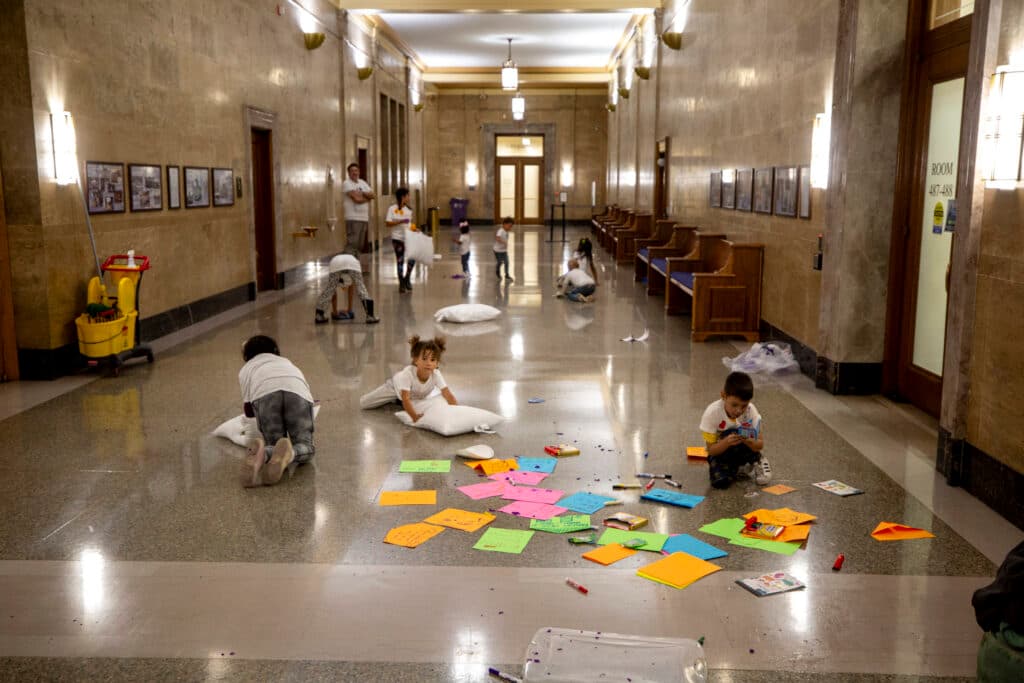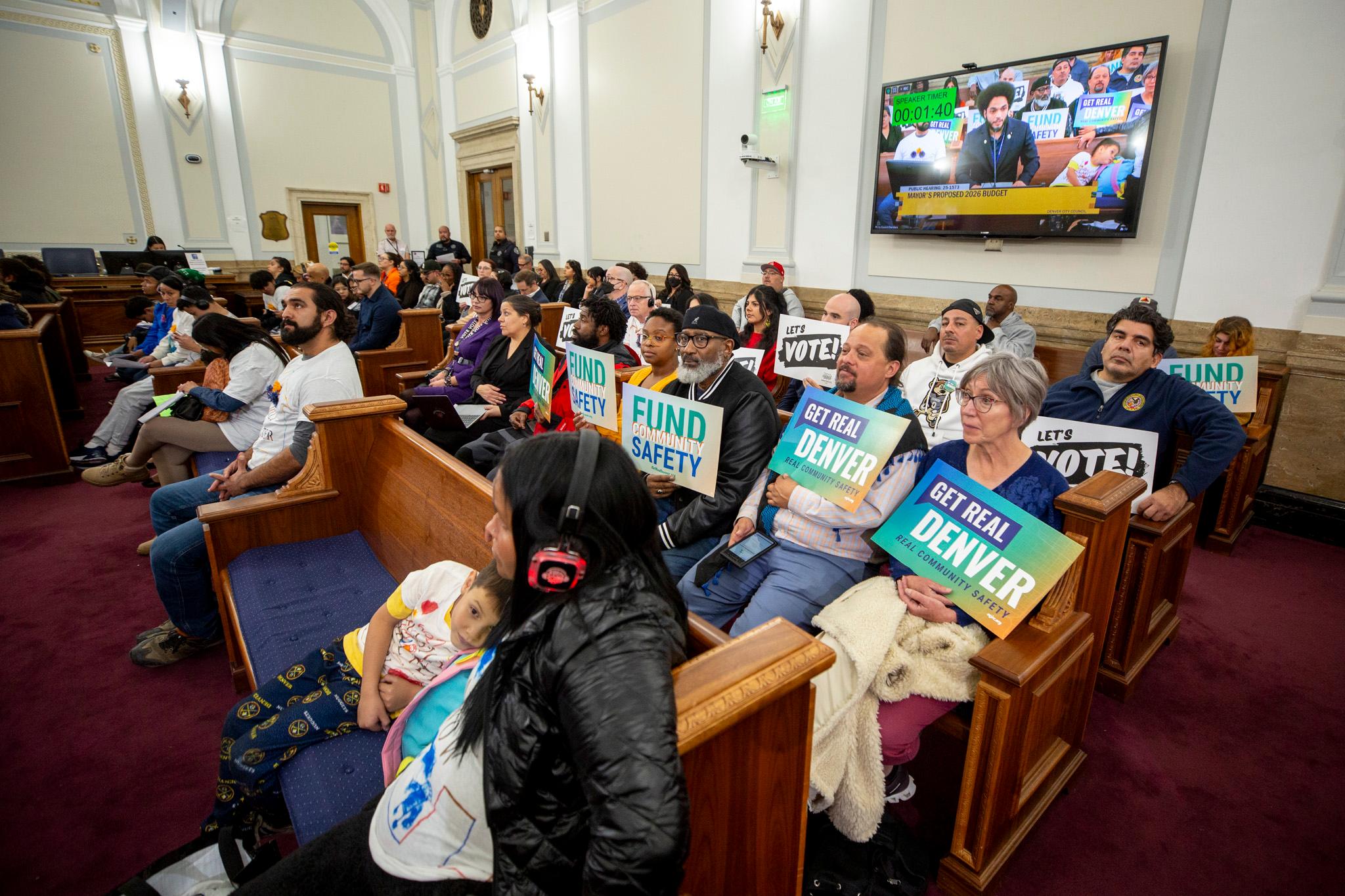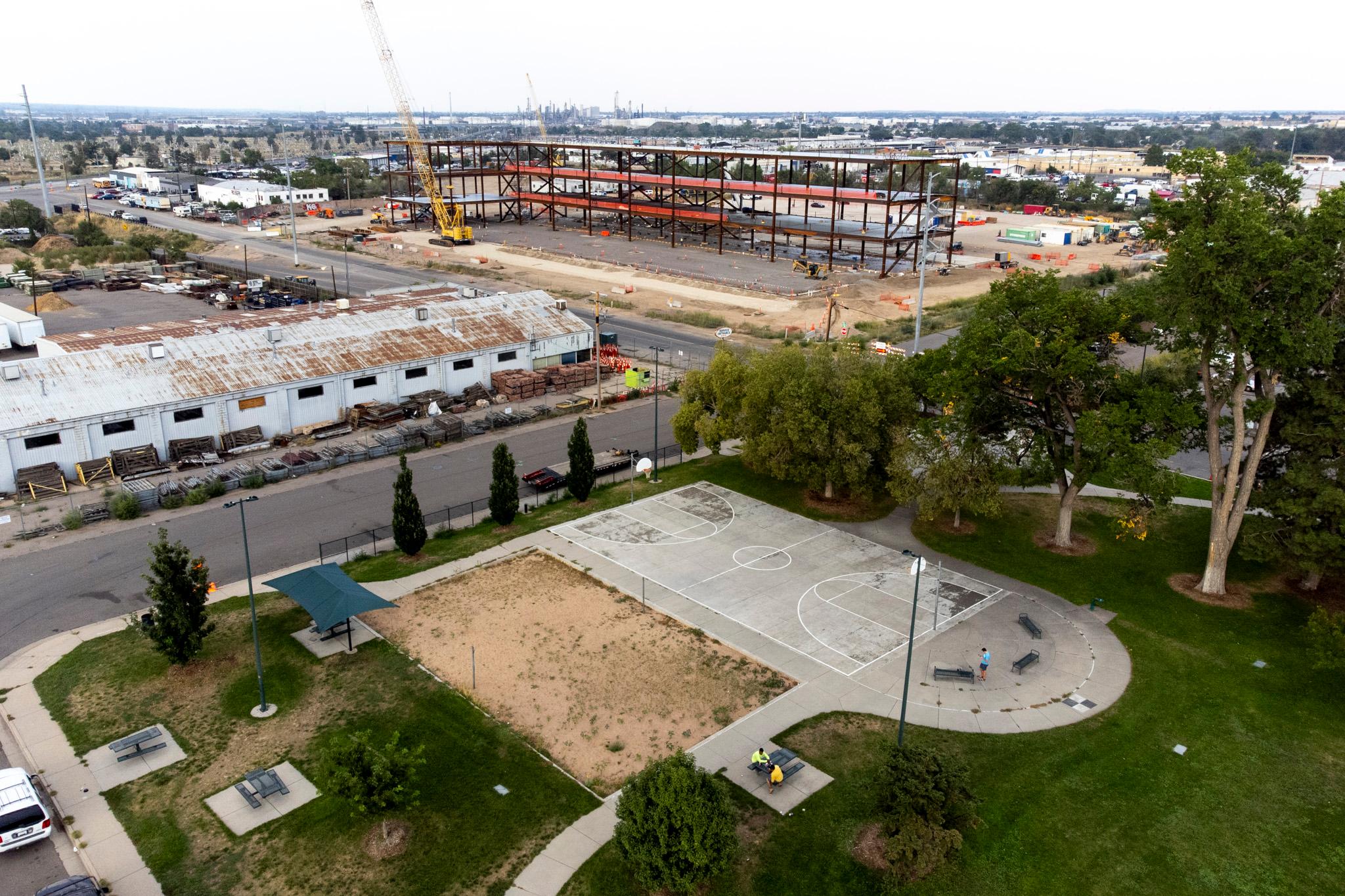Updated 4:15 p.m., Oct. 28, 2025.
Denver City Council President Amanda Sandoval, who has attended hundreds of public comment sessions over the past decade, found herself overwhelmed Monday night.
“That was the most intense public hearing I can remember having ever,” she said after residents shared a litany of needs and requests for the city’s upcoming budget.
Speakers wanted more community-based crime prevention programs. Safer transportation infrastructure. Support for youth arts and workforce development, and more funding for the Clerk and Recorder’s election services.
The city is facing a projected $200 million shortfall next year, thanks to a weakening economy, softening sales taxes and growing city spending. But more than 60 people signed up to request changes to his “cut-to-the-bone.”
The mayor has said there just isn’t enough money next year to pay for everything the community wants. The city has already laid off more than 170 workers and eliminated hundreds more positions. And Johnston says more layoffs or cuts could be necessary if the city council increases city spending.
City Council, which can amend the budget but not outright reject it, is in a bind: Should they push for amendments to the budget and risk prompting more cuts elsewhere? Or do they trust that Johnston’s budget strikes the right balance and potentially disappoint constituents?
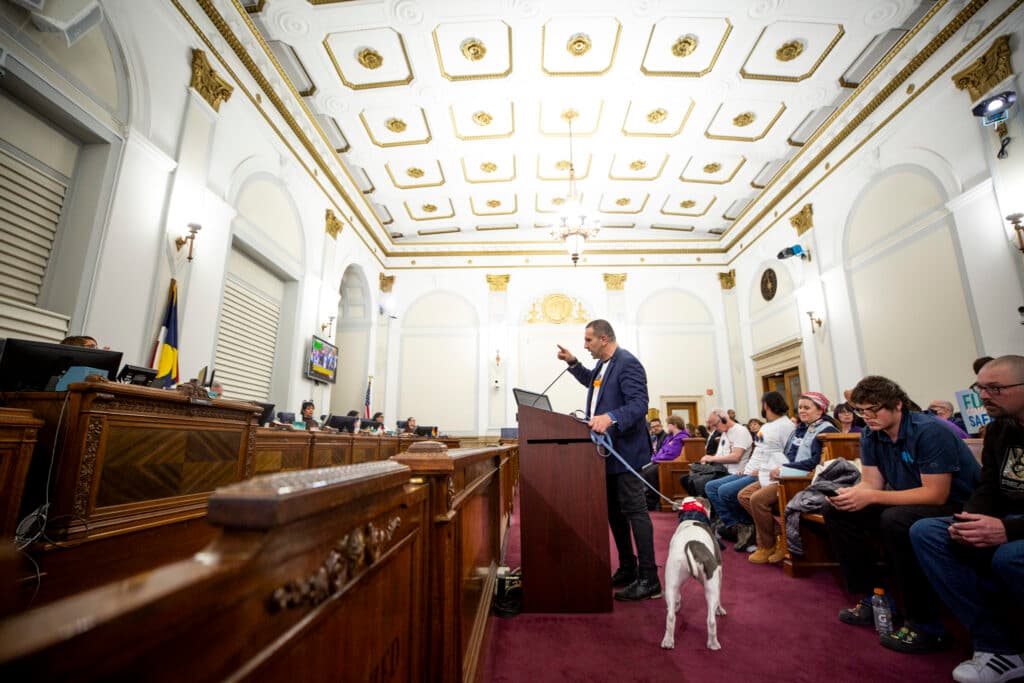
Calls for a family homeless shelter
Homeless families spoke about the long wait times they’re experiencing with the Connection Center, a family crisis hotline that is funded by the city and run by The Salvation Army. They told stories of life on the streets with their children, fearing the city would separate them from their kids.
Some spoke English. Others spoke Spanish. All were suffering with children. They asked the city to spend $9 million to buy or rent a hotel for use as a family shelter.
The city is ending funding for two shelters for individuals in 2026, which will save the city $11 million, while keeping other shelters running.
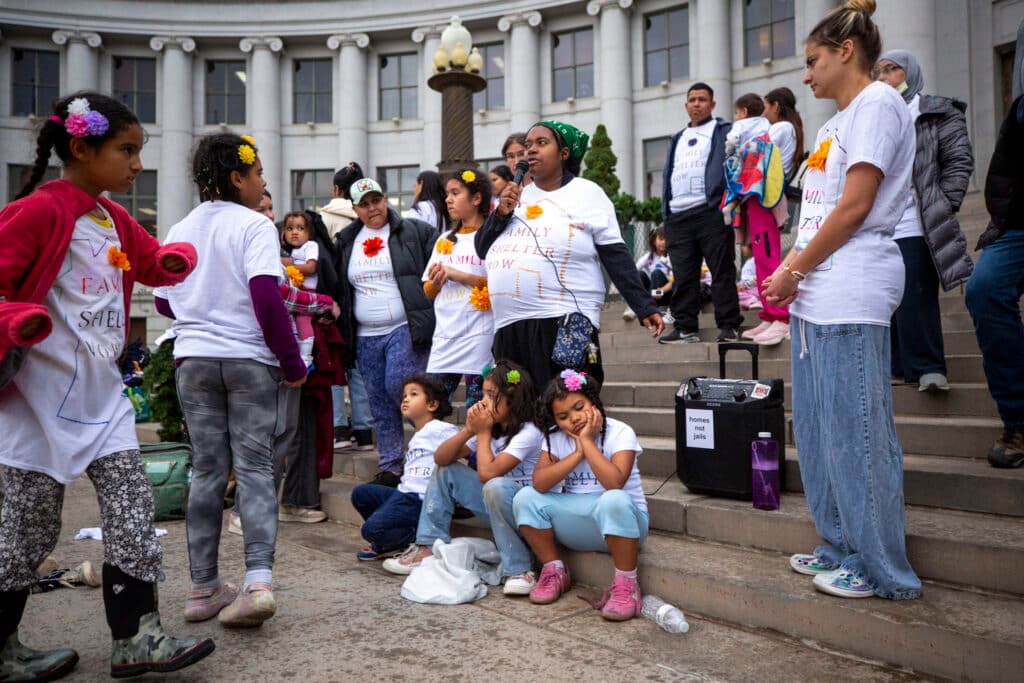
“No family should be punished for being poor or homeless,” said Rae Cranmer, a mother of seven, who said she lost her housing and was forced to send her children into an abusive household so they could stay sheltered and she would not have them taken from her by authorities.
Other parents told their stories of evictions, struggles to find work and deported spouses. Many described the long waitlist to come inside from their cars and the streets.
In its last report, The Salvation Army told the city there are 250 families on the shelter waitlist. As of Tuesday, it was 218.
“I hope that you guys realize that it is in your hands to decide if these kids get to have a warm, safe upbringing, a childhood,” said V Reeves with the Housekeys Action Network Denver.
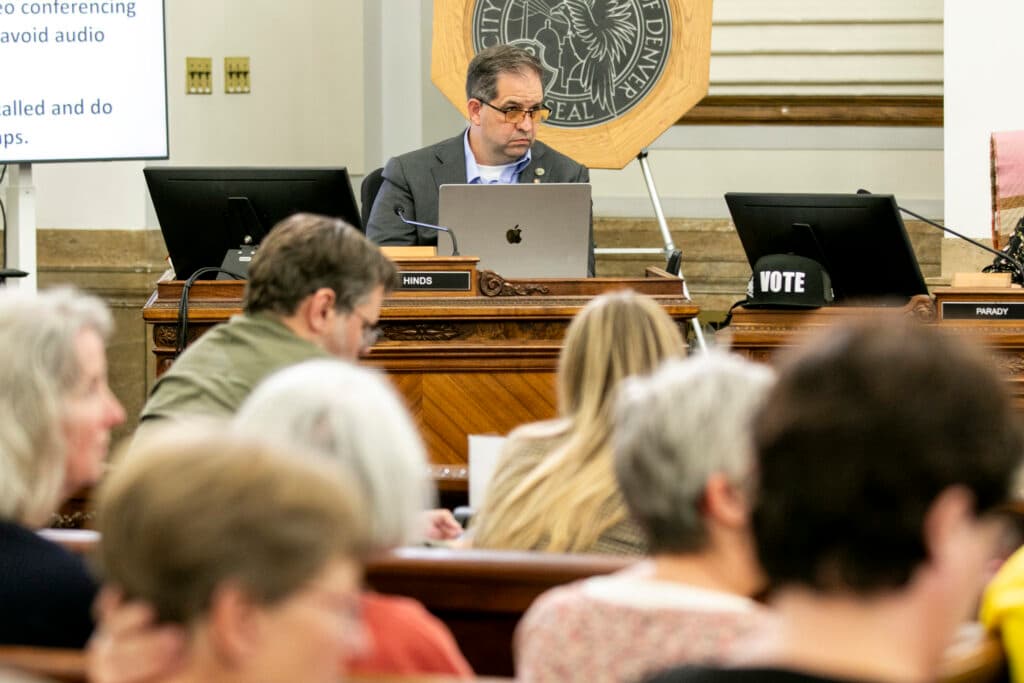
Transportation drama
Transportation advocates said the city wasn’t doing enough to end traffic deaths.
Neighborhood advocate Joel Noble, a former Denver Planning Board member, expressed his frustration that the Johnston administration planned to “raid” the city’s dedicated Transportation and Mobility Special Revenue Fund for $575,000 to restore the positions of laid-off parking magistrates.
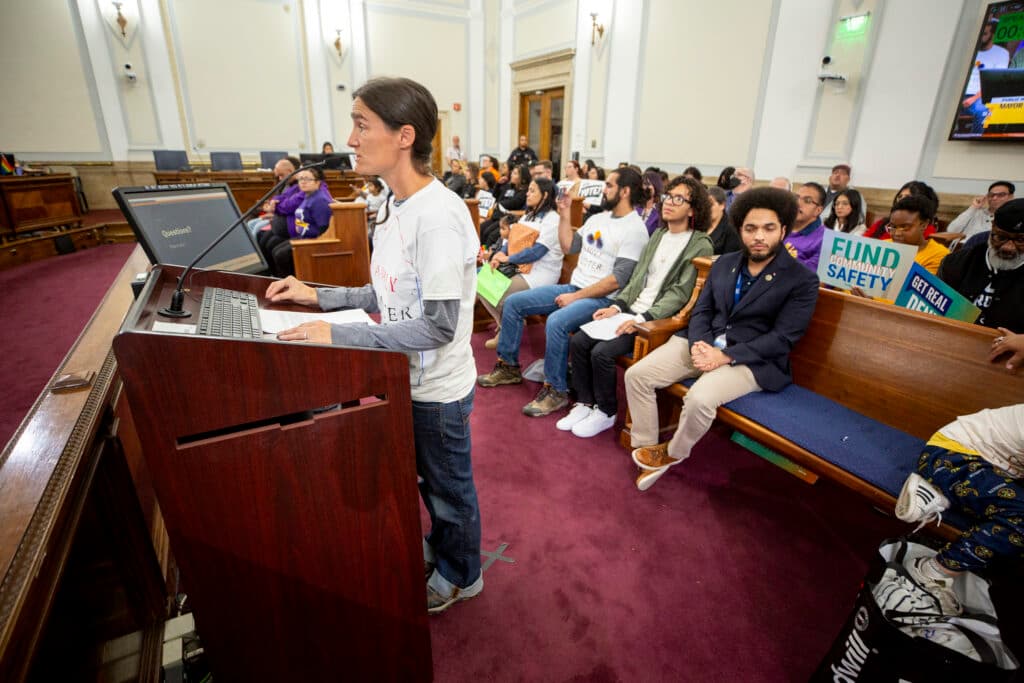
The fund was established in 2022 from increased parking meter fees. The money was dedicated for improvements to multimodal transportation. But as DOTI’s budget has been cut in recent years, The Denver Streets Partnership argues in a statement that the special funds have been used to “backfill budget gaps.”
If that fund is tapped for the parking magistrate funding, Noble argued the city would be doing long-lasting damage to the public’s trust that special funds will be used for the purposes described.
“I'm here defending this fund because I know that we were all told what it was for, and I do not like being lied to,” Noble said.
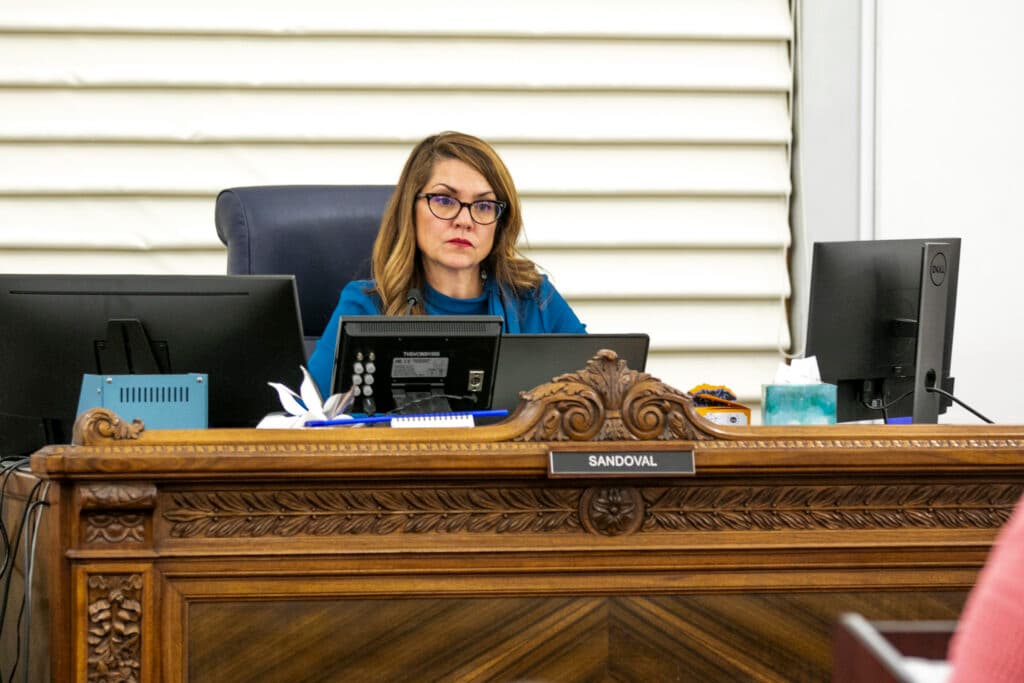
June Churchill, the budget chair of the Department of Transportation and Infrastructure Advisory Board, argued Johnston was treating the money as a “slush fund.”
Mayoral spokesperson Jon Ewing said the ability to dispute parking tickets without going to court is a priority for residents, the council and the administration. The Johnston administration recently agreed to create a new parking ticket appeal program after the city shut down an online appeals system.
“Understanding that the court system did not feel the program should live under them, we moved it to DOTI and utilized an existing funding source,” Ewing said. “This prevented other service or personnel cuts.”
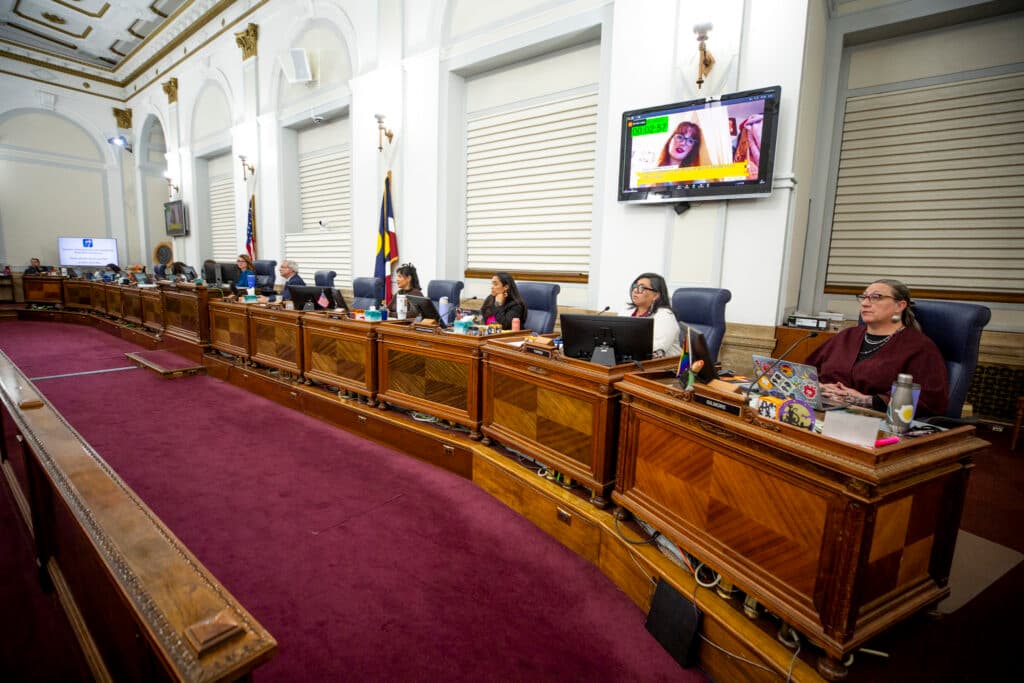
Churchill described the city’s overall budget as “fundamentally flawed.” The city has more assets than revenue, and it’s impossible to care for it all. She pointed to more than 60 structurally deficient bridges, eroding pavement and a city vehicle fleet that is largely outdated.
“The system won't fail tomorrow,” Churchill said. “But it will fall apart without serious intervention.”
Advocates also asked for additional funding for Vision Zero and Safe Routes to School, programs designed to prevent unsafe speeding and preventable traffic deaths and injuries.
People held signs that read “Fund Community Safety.”
They were part of a campaign to create a new $5 million program that would fund community-based violence prevention groups.
“When we invest in youth programs, victim services and conflict mediation, we are not just addressing crises, we are preventing them,” said Kym Rae, the campaign coordinator for the Colorado Criminal Justice Reform Coalition. “We are saving lives, saving public resources, and building a safer, more connected Denver for everyone.”
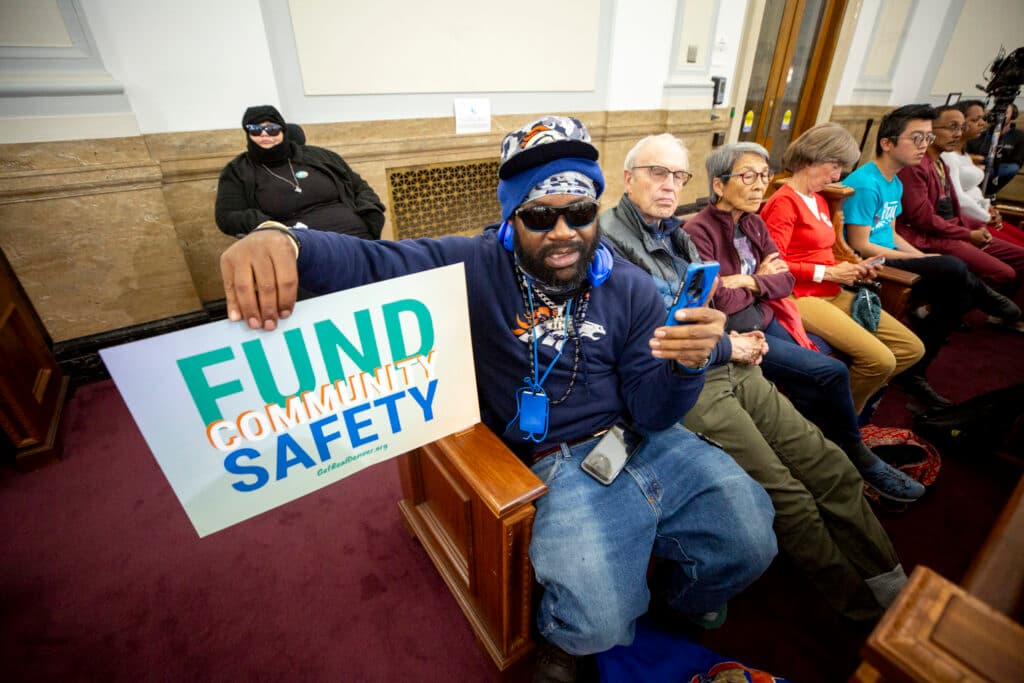
Hassan Latif, who spent 17 years in prison and left to create the Second Chance Center, a program to help formerly incarcerated people reenter society, said investing in such programming would strengthen communities and prevent violence before it happens.
“Denver invests hundreds of millions every year in reactive systems, policing, courts and jails,” he said. “It's time to show that same seriousness about prevention, intervention and victim support, the work that stops harm before it happens.”
Protecting election integrity
Community members, election judges, election workers and voter advocates asked City Council to give more funding to the Clerk and Recorder’s Office.
Clerk and Recorder Paul López had asked for an extra $4.5 million. But Johnston’s budget would slash the Clerk’s budget by 1.5 percent and offer less for elections than in 2022, during the last midterm election.
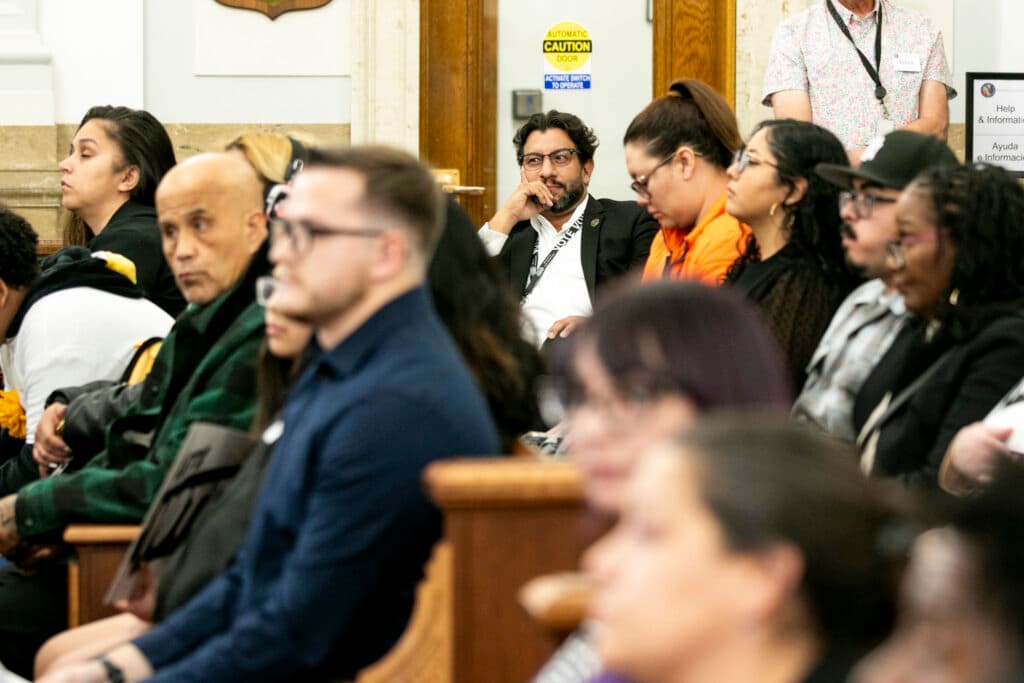
“Next year will be an especially critical and scrutinized election,” said Pearlanne Zelarney of the League of Women Voters. “An underfunded elections office risks undermining voter access and trust, precisely when we need it most.”
Susy Johnson, the president of Denver Republican Women and an on-again-off-again poll watcher, said the council should vote no on Johnston’s proposed budget until the mayor adequately funds polling places, ballot boxes, and the election staff voters depend on.
“These changes are not just inconvenient,” she said. “They represent a direct threat to the public's trust in our elections.”
Slashing services for children
Johnston’s proposed budget reduces funding for the Office of Children Affairs, which funds after-school programs. The city laid off 10 people, and eliminated two open positions, out of a staff of 31. Johnston’s budget proposal reduces its funding by about 56 percent.
“We suggest you continue to fund the Office of Children's Affairs and programs that allow us to express ourselves, that allow us to build a better future for our community and possibly our world,” said Julian Adam Martinez, who attends DSST College View and works as an intern at ArtLab.
He fears that without city funding, ArtLab will be shut down and youth like him will miss an opportunity to gain professional experience and skills.
“We must invest in young people — not cut resources that help young people grow, heal and lead,” said Stephen Smith Contreras of Youth on Record.
Next steps
Next week, the council will take what they learned from the public on Monday night and deliberate on adding new amendments. With a supermajority vote of nine members, they could also revive previously proposed amendments the mayor has already vetoed.
Then they will decide whether to pass his budget, though that’s largely a formality. Johnston’s draft, as amended by the council, will take effect. Council members have no power to outright block his proposal.
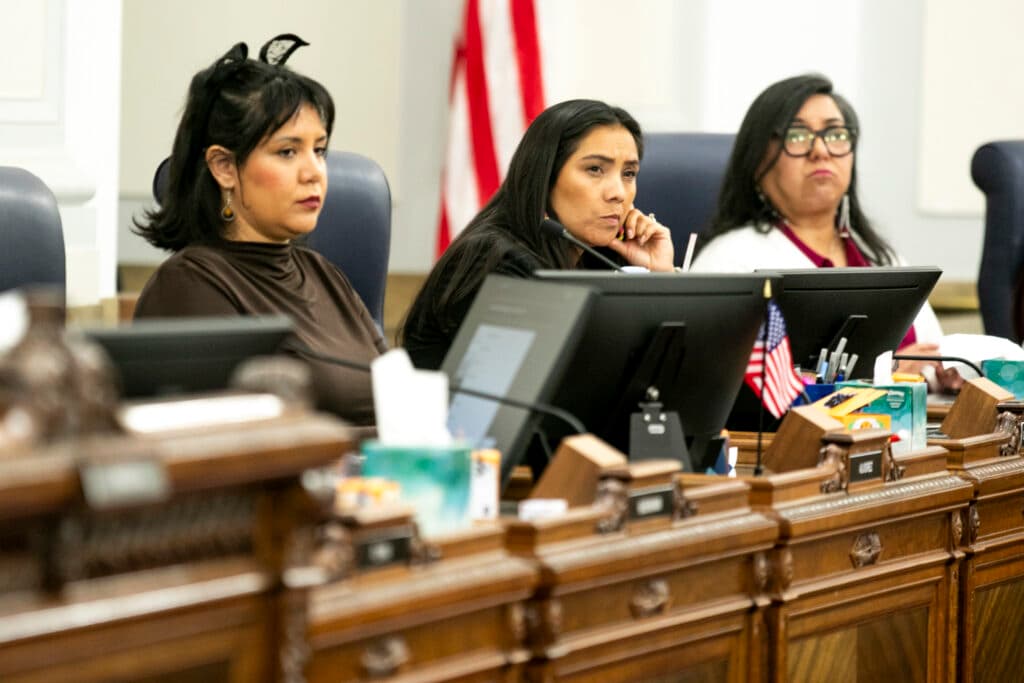
Two council members expressed their frustration that the mayor provided insufficient staff to answer their questions. Some from the public were frustrated the mayor himself was not present.
“I wish he was here tonight to hear what you are listening to,” said Marilyn Ackerman, a member of Montview Presbyterian Church and Together Colorado. “When I voted for him, he said he was interested in co-governance.”
That, she said, hasn’t happened.
“Staff was present and we’re always happy to answer additional questions after the fact, as we have throughout the budget process,” Ewing said.
Editor's note: This article was corrected to note that there are 250 families, not individuals, on the Connection Center waitlist.
